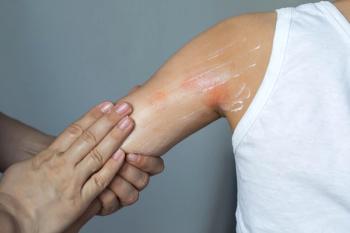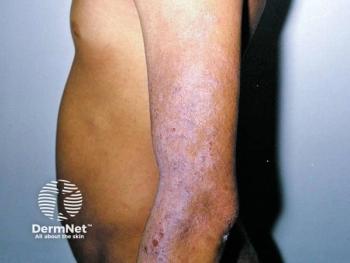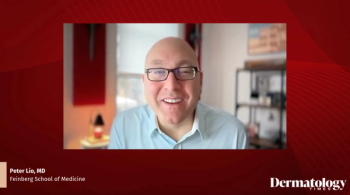
HPV vaccine approval will lead to several questions
Washington - A human papilloma virus (HPV) vaccine, based onnoninfectious virus-like particles, could be on the market as earlyas this summer, according to John Schiller, Ph.D., section chief,laboratory of cellular oncology, National Cancer Institute,Bethesda, Md.
Washington - A human papilloma virus (HPV) vaccine, based on noninfectious virus-like particles, could be on the market as early as this summer, according to John Schiller, Ph.D., section chief, laboratory of cellular oncology, National Cancer Institute, Bethesda, Md.
The vaccine is active against HPV types 16 and 18, the HPV types found in more than 70 percent of cervical cancers worldwide, and has previously demonstrated 100 percent efficacy against premalignant disease caused by these two types, according to Dr. Schiller, speaking at the 45th annual Interscience Conference on Antimicrobial Agents and Chemotherapy, here.
HPV 16/18 infections have a high rate of progression to cervical precancer and cancer, he says, in explaining the importance of an HPV vaccine. Cervical cancer arises from a set of precancerous lesions, which are designated LSIL and HSIL cytologically.
GlaxoSmithKline has developed a bivalent vaccine that contains virus-like particles of HPV 16 and 18 only, and has stated that it will likely seek regulatory approval for it in 2006, perhaps first in Europe.
Availability of the HPV vaccine in the United States will decrease the number of abnormalities found on Pap smears, "especially severe abnormalities that are treated surgically," Dr. Schiller says.
Once the vaccine hits the market, "Issues of vaccine acceptability, accessibility and integration into screening programs will dominate the agenda in the coming years," he says.
Three phase 3 trials of HPV vaccines are in progress, with both virologic and clinical endpoints. The virologic endpoint is persistent cervical HPV DNA. The clinical endpoint is development of cervical intraepithelial neoplasia (CIN) 2 (intermediate cervical dysplasia) and CIN 3 (high-grade cervical dysplasia).
"Persistence is important because women generally have transient HPV infection, and these are not associated with the development of cervical cancer," Dr. Schiller says.
In a study of 12,167 women aged 16 to 26 years who were not infected with HPV 16 or 18 at enrollment, three doses of the Merck HPV vaccine prevented 100 percent of cases of high-grade (CIN grades 2 or 3) or adenocarcinoma in situ associated with HPV types 16 and 18 over an average follow-up period of 17 months. No cases of cervical CIN 2/3 or adenocarcinoma in situ were observed in the vaccine group compared with 21 cases in the placebo group.
Outcomes one month after the first dose suggest that, "Even after one dose, some protection is afforded by this vaccine," Dr. Schiller says.
Interim results of another study presented here showed that the quadrivalent vaccine, "works just as well in disease of the lower genital tract as on cervical disease," Dr. Schiller says. In this study, there were no cases of genital warts or vulvar or vaginal neoplasia in subjects randomized to the vaccine compared with 40 cases in subjects randomized to placebo.
Vaccination targets
The primary target of vaccination will be 10 to 13 year-old girls who have not yet been exposed to the HPV 16 or 18. A secondary target will be somewhat older women since some may still not have yet been infected with the virus, and because the vaccine may reduce auto-inoculation and transmission, although this benefit has not been demonstrated experimentally.
Adolescent boys and men might represent a third group, although efficacy in males has not yet been demonstrated, and the impact on herd immunity may be small by inoculating this group if coverage of women is adequate.
Asking unanswered questions
Several issues with the vaccine remain, including its duration of protection. Three- to four-year follow-up of women given the Merck HPV 16 vaccine are encouraging, with complete protection against HPV 16 CIN, Dr. Schiller says.
Another issue is whether or not vaccines against HPV 16 and 18 will offer cross-protection against other HPV types.
Newsletter
Like what you’re reading? Subscribe to Dermatology Times for weekly updates on therapies, innovations, and real-world practice tips.












